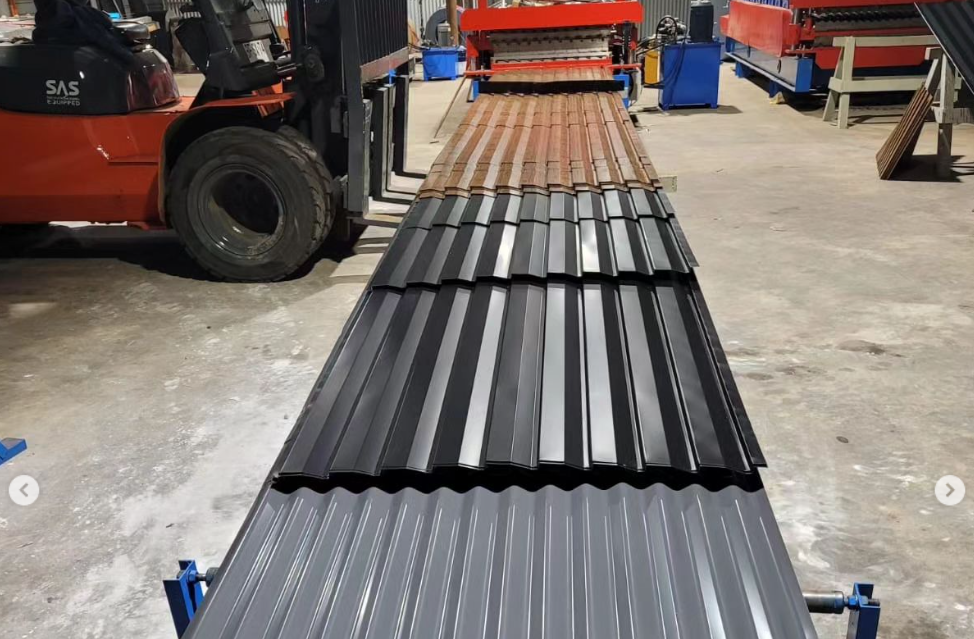metal roofing machine for sale factories
Understanding Metal Roofing Machines for Sale A Guide for Factories
In the ever-evolving world of construction and manufacturing, metal roofing has gained substantial popularity due to its durability, energy efficiency, and aesthetic appeal. As the demand for metal roofs continues to rise, factories are increasingly looking to invest in high-quality metal roofing machines. This article aims to provide a comprehensive overview of metal roofing machines available for sale, their significance in factories, and key factors to consider when purchasing one.
What is a Metal Roofing Machine?
A metal roofing machine is a specialized piece of equipment designed to manufacture metal roofing materials. These machines can produce a variety of roofing profiles, from traditional corrugated sheets to modern standing seam panels. By utilizing high-speed technology, these machines can turn raw metal coils into ready-to-install roofing components, significantly streamlining the production process.
Types of Metal Roofing Machines
There are several types of metal roofing machines available on the market, each catering to different production needs
1. Roll Forming Machines This is the most common type of metal roofing machine. Roll forming involves feeding metal sheets through a series of rollers to create desired shapes and profiles. These machines can be customized to produce various types of roofing, including panels with different thicknesses and designs.
2. Cut-to-Length Machines These machines cut metal sheets into specific lengths after they have been formed. They are essential for factories that require precise sizing for their roofing products.
3. Slitting Machines Used primarily for processing metal coils, slitting machines cut the coils into narrower strips that can then be shaped into roofing panels.
4. Trimming Machines These machines trim edges and provide a finished look to the metal roofing panels, ensuring they meet quality standards.
Benefits of Metal Roofing Machines for Factories
Investing in metal roofing machinery can bring numerous benefits to manufacturing facilities
- Increased Production Capacity Automated machines can operate at high speeds, significantly increasing the output of roofing materials compared to manual processes.
metal roofing machine for sale factories

- Cost Efficiency By producing their own roofing materials, factories can reduce costs associated with purchasing from external suppliers, therefore maximizing profit margins.
- Customization With the ability to adjust settings, factories can produce a variety of roofing styles and sizes to meet specific customer demands.
- Quality Control Having in-house manufacturing allows for better quality control throughout the production process, ensuring that every panel meets industry standards.
Key Factors to Consider When Purchasing Metal Roofing Machines
When looking to purchase metal roofing machines for sale, factories should consider several important factors
1. Production Needs Determine the volume and types of roofing products required. This will help in selecting the right machinery that can handle the expected workload.
2. Space and Layout Ensure that there is enough space in the factory to accommodate the machines. Consider the layout for optimal workflows.
3. Budget Set a realistic budget, keeping in mind not only the cost of the machinery but also maintenance, training, and operational expenses.
4. Supplier Reputation Research potential suppliers to gauge their reputation in the industry. Look for reviews or case studies that showcase their products and after-sale services.
5. Technical Support Ensure that the supplier offers comprehensive technical support, training, and warranty services for the machines.
Conclusion
Metal roofing machines are an essential investment for factories looking to capitalize on the growing demand for metal roofing products. With various types of machines available, each designed for specific production tasks, it is essential for factory owners to carefully assess their needs and explore the market before making a purchase. By choosing the right metal roofing machines, factories can enhance their production capabilities, improve quality, and ultimately increase profitability in the competitive roofing industry.
-
Roof Panel Machines: Buying Guide, Types, and PricingNewsJul.04, 2025
-
Purlin Machines: Types, Features, and Pricing GuideNewsJul.04, 2025
-
Metal Embossing Machines: Types, Applications, and Buying GuideNewsJul.04, 2025
-
Gutter Machines: Features, Types, and Cost BreakdownNewsJul.04, 2025
-
Cut to Length Line: Overview, Equipment, and Buying GuideNewsJul.04, 2025
-
Auto Stacker: Features, Applications, and Cost BreakdownNewsJul.04, 2025
-
Top Drywall Profile Machine Models for SaleNewsJun.05, 2025








